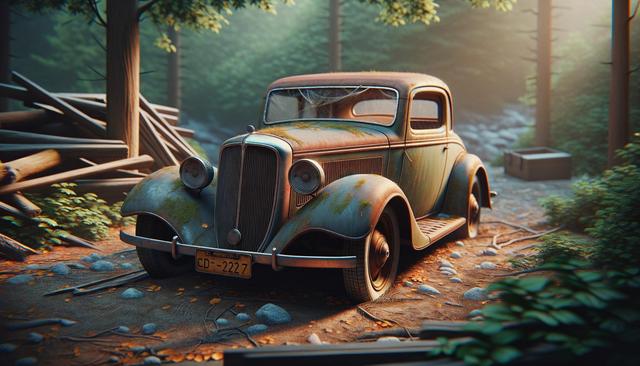Understanding What Makes a Car a ‘Clunker’
The term ‘clunker’ generally refers to an old, worn-out vehicle that is no longer reliable for daily use. These cars often have high mileage, outdated features, or mechanical issues that make them impractical to maintain. However, even a vehicle in poor condition can hold value, especially for parts or scrap metal. Identifying whether your car qualifies as a clunker is the first step in deciding how to sell it. Common signs include frequent breakdowns, costly repair estimates, and failing emissions tests. It’s also important to consider whether the cost of repairing the vehicle exceeds its market value.
Clunker cars can still appeal to certain buyers. Hobbyists, mechanics, or collectors might be interested in salvaging parts or restoring the vehicle. Additionally, some buyers may be looking for inexpensive transportation and are willing to invest in minor repairs. Knowing your target market will help you set realistic expectations and pricing.
How to Prepare a Clunker Car for Sale
Even if your car is in rough shape, there are steps you can take to make it more appealing to potential buyers. Start by cleaning the interior and exterior to give it a presentable look. Remove all personal belongings and consider using a vacuum and basic cleaning supplies to tidy up the seats, dashboard, and carpets. A clean appearance can influence the buyer’s perception, even if the car has mechanical issues.
Next, gather all relevant documents. These may include:
- The vehicle title
- Maintenance records
- Any repair estimates or receipts
- Smog or emissions test results
Transparency is key when selling a clunker. Be honest about the car’s condition, and disclose any known issues to avoid disputes later. You should also determine whether your car is drivable or needs to be towed. If it’s not in running condition, some buyers or junk removal services may offer towing as part of the transaction.
Where and How to Sell a Clunker Car
There are several avenues for selling a clunker, each with its own advantages. Online marketplaces allow you to reach a wide audience, while local junkyards or salvage yards offer quick, no-hassle sales. Here are a few common options:
- Private buyers through classified ads
- Online car marketplaces
- Scrap or junk car buyers
- Donation programs (with potential tax benefits)
When choosing where to list your vehicle, consider the level of convenience, the expected payout, and the time it will take to finalize the sale. For instance, junk car buyers often provide instant quotes and same-day pickup, but the payout may be lower than selling it privately. On the other hand, private sales can yield a higher return, but require more effort in communication and negotiation.
Pricing and Negotiating a Clunker Car Sale
Setting the right price for a clunker car can be challenging. You’ll need to balance between what the car is worth in its current condition and what buyers are willing to pay. Start by researching similar listings in your area to get a sense of the market. You can also check with local scrapyards to find out what they’d offer for scrap value.
If your car has any functional parts or features, highlight them in your listing. These might include:
- Working air conditioning or stereo system
- Recent tire replacements
- Intact body panels or glass
- Low-cost repair opportunities
Be prepared to negotiate. Buyers may point out flaws to drive the price down, so go into discussions with a minimum acceptable price in mind. It’s also acceptable to accept non-cash offers such as trade-ins or services, especially if you’re dealing with individual buyers or mechanics.
Legal and Safety Considerations
Before finalizing any sale, ensure that the legal transfer of ownership is handled properly. This typically involves signing over the title, providing a bill of sale, and notifying your local DMV or transportation agency. Some jurisdictions also require a release of liability form, which protects you if the car is involved in an accident after the sale.
From a safety perspective, meet buyers in public places and avoid sharing personal details unnecessarily. If the car is not operational, arrange for a tow rather than having strangers visit your home. Additionally, remove the license plates and cancel your insurance policy once the sale is complete to avoid future charges or legal complications.
Many buyers of clunker cars operate professionally, but it’s still wise to verify their credentials. Look for reviews or business listings, and avoid transactions that seem suspicious or rushed. A secure sale is just as important as a profitable one.
Conclusion: Making the Most of Your Clunker
Whether you’re trying to clear space in your driveway or hoping to earn a few extra dollars, selling a clunker car doesn’t have to be a complicated process. With the right preparation, realistic expectations, and attention to legal details, you can turn an old vehicle into a valuable opportunity. This process is especially useful for individuals looking to upgrade their transportation, downsize, or simply dispose of an unused asset responsibly. By understanding your options and targeting the right buyer, even a clunker can find a new purpose.












